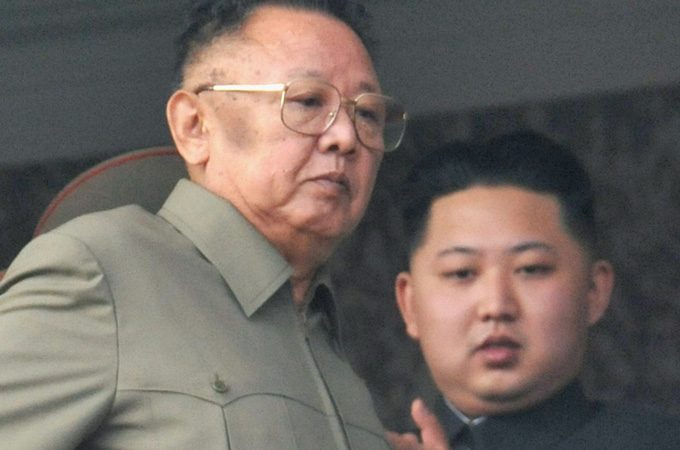N Korea ruler’s son opposes dynasty
The eldest son of Kim Jong-il says he is opposed to hereditary transfer of power after youngest brother chosen as heir.

 |
| North Korean leader Kim Jong-il is reported to have chosen his youngest son Kim Jong-un as heir [REUTERS] |
The eldest son of Kim Jong-il, North Korea’s reclusive leader, has expressed opposition to hereditary transfer of power to a third generation of his family, just days after his brother has been chosen by their father as heir. But he wished his brother the best in his new career.
Kim Jong-nam’s remarks come days after North Korea unveiled Kim Jong-un as successor to his father at a large military parade in Pyongyang, the country’s capital.
“Personally, I am against third-generation dynastic succession,” Kim Jong-nam said in an interview with Japan’s TV Asahi on Sunday, the day before the parade where his brother took centre-stage and made his national and international debut.
“But I think there were internal factors. I think we should adhere to it if there were internal factors involved.”
Out of favour
Kim Jong-il’s oldest son has been thought to have fallen out of his father’s favour, especially after he was deported from Japan on suspicion of trying to enter Japan with forged travel documents to go to Tokyo Disneyland.
|
Al Jazeera’s Melissa Chan got a peek at life in Pyongyang, North Korea’s capital |
Jong-nam, believed to be 39, has spoken to reporters several times mostly in Beijing, answering questions in Korean and in nearly fluent English, and has rejected the idea that he will try to take over power from his father.
“I think my father decided [for Jong-un to be successor]. I don’t regret it and I’m not interested in it, so I don’t mind. I want my brother to do his best for the North Korean people, for their prosperity,” he said in Korean.
“I am ready to help my brother at any time overseas if he needs me to.”
Jong-nam is believed to be the son of an actress who later died in Moscow. The mother of his two brothers, including the youngest Jong-un, was a dancer.
Jong-un, thought to be in his late-20s, stood near his father on the balcony overlooking a big military parade on Sunday in Pyongyang, clapping and saluting thousands of soldiers and reviewing missile, tanks and rockets.
He was promoted to a general last month and was appointed to a key political post in the ruling Workers’ Party–a move widely seen as the final seal to succeed his father. The elder Kim had reportedly suffered a stroke in 2008 and is seen to be in failing health.
Andrei Lankov, a professor of Korean Studies at Seoul’s Kookmin University, told Al Jazeera it appeared that North Korea was making serious preparations for the succession plan.
“Jong-un is well-positioned to run the country or at least to be the supreme leader, formally and technically a figurehead. He is very young, very inexperienced… and in all probability will be controlled by his uncle and his aunt,” he said.
Backing by the military is considered a prerequisite for the succession to be carried out smoothly in a country that operates on a “military first” policy where priority is given to the armed forces.
The senior Kim was officially chosen as successor in 1972, when he was elected to the party’s central committee, and the same scenario could hold true for his.
The question of who will take over from the senior Kim, believed to suffer from a host of ailments, is important to regional dynamics as well as security, because of North Korea’s active nuclear and missile programmes, and regular threats it makes against rival South Korea.